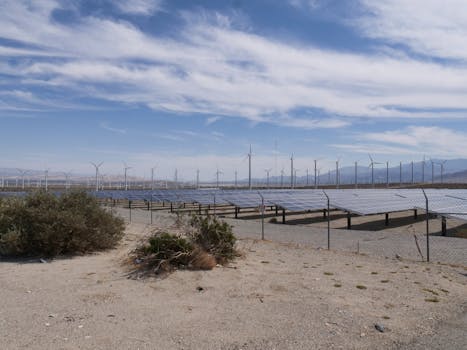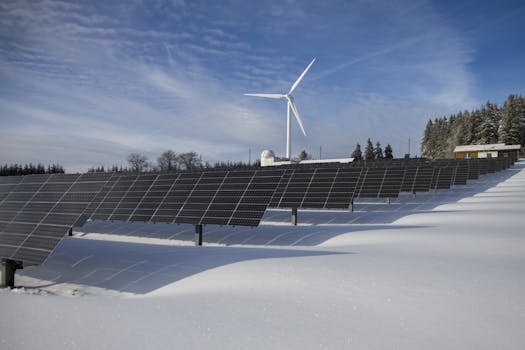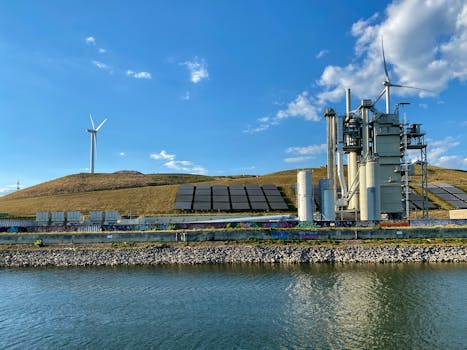
Breakthroughs in Renewable Energy Technology and Sustainability
Renewable energy technology has made significant breakthroughs in recent years, paving the way for a more sustainable future. Renewable energy is becoming increasingly important as the world shifts away from fossil fuels and towards cleaner, more sustainable sources of energy.
Introduction to Renewable Energy

Renewable energy is energy that comes from natural resources that can be replenished over time, such as sunlight, wind, and water. These sources of energy are becoming increasingly important as the world looks to reduce its reliance on fossil fuels and decrease greenhouse gas emissions. There are several types of renewable energy, including:
- Solar energy: energy generated from the sun’s rays
- Wind energy: energy generated from the wind
- Hydro energy: energy generated from the movement of water
- Geothermal energy: energy generated from the heat of the earth
Breakthroughs in Renewable Energy Technology

There have been several breakthroughs in renewable energy technology in recent years, including:
- Advances in solar panel technology: solar panels are becoming more efficient and less expensive, making them a more viable option for homeowners and businesses
- Development of floating wind turbines: these turbines can be placed in the ocean, where the wind is stronger and more consistent, making them a promising source of renewable energy
- Improvements in energy storage: advances in battery technology have made it possible to store excess energy generated by renewable sources, making it possible to use renewable energy even when the sun is not shining or the wind is not blowing
Sustainability and Renewable Energy

Sustainability is a critical component of renewable energy. As the world shifts towards cleaner, more sustainable sources of energy, it is essential to consider the impact of renewable energy on the environment and local communities. Some of the ways that renewable energy can promote sustainability include:
- Reducing greenhouse gas emissions: renewable energy can help reduce our reliance on fossil fuels, which are a significant contributor to greenhouse gas emissions
- Conserving water: many forms of renewable energy, such as solar and wind power, require very little water to operate, making them a more sustainable option than traditional sources of energy
- Protecting ecosystems: renewable energy can help reduce the impact of human activity on the environment, protecting ecosystems and preserving biodiversity
Conclusion

In conclusion, renewable energy and sustainability are critical components of a more sustainable future. The breakthroughs in renewable energy technology have made it possible to generate clean energy from natural resources, reducing our reliance on fossil fuels and promoting sustainability. As the world continues to shift towards cleaner, more sustainable sources of energy, it is essential to consider the impact of renewable energy on the environment and local communities, and to promote sustainability in all aspects of renewable energy development.






